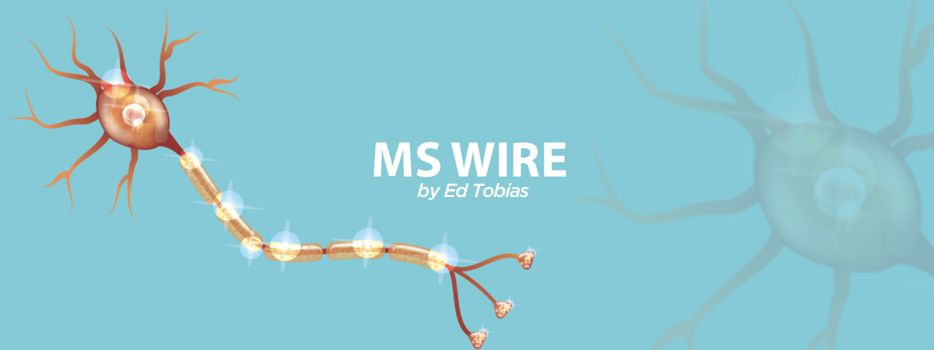MS News That Caught My Eye Last Week: Pediatric MS, Rituximab, AHSCT, Zeposia
Written by |

Tecfidera Safe and Effective Over Long Term in Children With RRMS, Trial Shows
In my view, too little attention has been paid to treating children and teens with MS between the ages of 10 and 18. Though things seem to be improving, only one disease-modifying therapy, Novartis’ Gilenya (fingolimod), is approved in the U.S. to treat pediatric MS. So, I’m always on the alert for information about other DMTs that are being studied for possible use by young people. I’ll bet their parents are, too.
Long-term treatment with Tecfidera (dimethyl fumarate) safely and effectively reduces the frequency of relapses in children with relapsing-remitting multiple sclerosis (RRMS), according to 2.5 years of data from the FOCUS Phase 2 trial and its extension study.
These findings are consistent with those previously reported for adult patients, supporting Tecfidera’s use in pediatric patients, for whom approved therapies are limited.
Click here to read the full story.
***
Rituximab Effects Evident at Low Dose, Persist After Treatment Stops
I think nearly everyone with MS has wondered at one time or another what would happen if we stopped taking our medications. I have questioned that several times over my four decades living with MS. But I’ve always continued my therapy, thinking there was a good possibility my MS would progress at a faster rate if I stopped my medication. So, this study really jumped out at me. I’d very much like to see a similar study applied to the many other disease-modifying therapies in use today.
Rituximab shows long-term benefits, even among people with relapsing-remitting multiple sclerosis (RRMS) and clinically isolated syndrome (CIS) who stopped its use or reduced their dose, a study reported.
Researchers found little evidence of disease reactivation among patients who discontinued the medication, and an adequate inflammatory disease suppression among those whose annual doses were under 1,000 mg.
Click here to read the full story.
***
Stem Cell Transplant Can Produce Long-term Benefits in Relapsing MS Patients
Add another study to the list of those reporting benefits from stem cell transplants for people with MS. How much longer will it take before regulators in the U.S. approve AHSCT as an MS treatment?
A stem cell transplant can prevent disability progression and maintain disease remission over long periods of time in most patients with relapsing forms of multiple sclerosis (MS) who failed to respond adequately to disease-modifying therapies (DMTs), a study reports.
The study, “Long-Term Clinical Outcomes of Hematopoietic Stem Cell Transplantation in Multiple Sclerosis,” was published in the journal Neurology.
Click here to read the full story.
***
NICE Opposes Zeposia Being Added to RRMS Therapies in UK’s Health Service
Here’s another decision that has me scratching my head. The government agency that recommends the MS treatments that should be available to people in England and Wales has given a thumbs-down to Zeposia. Regulators there decided that Avonex is good enough, even though their studies showed that Zeposia was superior to Avonex at reducing relapses and brain lesions. It’s not “cost-effective,” they say. Arghhh!!! I wish these regulators could be forced to walk in the shoes of someone with MS for a day.
The National Institute for Health and Care Excellence (NICE) does not recommend Zeposia (ozanimod) be available at low or no cost through the National Health Service (NHS) to treat adults with active relapsing-remitting multiple sclerosis (RRMS) living in England and Wales.
In a recent draft recommendation, NICE stated that data from two clinical trials — the Phase 3 SUNBEAM (NCT02294058) and the Phase 3 portion of RADIANCE (NCT02047734) — showed Zeposia was superior to Avonex (interferon beta-1a, by Biogen) at reducing the frequency of MS relapses, as well as the number of brain MRI lesions in RRMS patients.
Click here to read the full story.
We’ll be talking about some of these stories at our MS News Today Forums. Come join us.
***
Note: Multiple Sclerosis News Today is strictly a news and information website about the disease. It does not provide medical advice, diagnosis, or treatment. This content is not intended to be a substitute for professional medical advice, diagnosis, or treatment. Always seek the advice of your physician or other qualified health provider with any questions you may have regarding a medical condition. Never disregard professional medical advice or delay in seeking it because of something you have read on this website. The opinions expressed in this column are not those of Multiple Sclerosis News Today or its parent company, Bionews, and are intended to spark discussion about issues pertaining to multiple sclerosis.



Leave a comment
Fill in the required fields to post. Your email address will not be published.